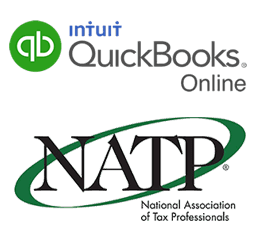Stock Compensation Plans
Renee Daggett • February 20, 2020
If you are one of the rising number of employees receiving some form of stock compensation through your job, you know how confusing it can be to understand how each type works and the varying tax considerations you need to be aware of.
Stock Options:
If you are one of the rising number of employees receiving some form of stock compensation through your job, you know how confusing it can be to understand how each type works and the varying tax considerations you need to be aware of.
Nonqualified Stock Options
:
The difference between the value of the shares on the purchase date and the price you are paying is the “spread” and is included in your wages, with taxes withheld on it, in the year of exercise.
Incentive Stock Options
:
When you exercise the options/buy the stock, you do NOT have to include the “spread” in your ordinary income as with NSOs, although the ISO spread may in some cases trigger alternative minimum tax (AMT).
Employee Stock Purchase Plans (ESPPs):
Employee Stock Purchase Plans allow employees to purchase employer's stock at a discount, usually through contributions made via payroll deductions. The employee contributes to a stock purchase fund and, at certain points during the year, the employer uses the funds to purchase stock for him/her at the discount. Taxation occurs upon the sales of the stock. The calculation of the amount of ordinary income vs. capital gain depends on whether the ultimate sale of the stock constitutes a qualifying or disqualifying disposition.
Restricted Stock:
Restricted Stocks are granted to an employee. They are nontransferable and can be forfeited under conditiong such as employment termination or inability to meet certain performance benchmarks. The employee is granted shares over a period of time. accoring to a vesting schedule lasting several years, and also receives voting rights.
How they are taxes depends on whether an 83(b) election has been made:
Without 83(b) election:
The entire amount of the stock - the fair market value on the vesting date (the date that restrictions on your stock rights lapse) - is included in ordinary income/reported on W-2 in the year of vesting.
With 83(b) election:
The value of the stock on the grant date, not the vesting date, is reported as ordinary income/taxed in the year granted.
|
|
Restricted Stock Units:
A Restricted Stock Unit (RSU) is a promise by the company to grant a set number of shares of stock upon completion of a vesting schedule. The employee is granted shares of stock after vesting and forfeiture requirements have been met and does not have voting rights during the vesting period since no stock has been issue. The fair market value of the stock on the vesting (or settlement) date is reported as ordinary income/on the W-2 in the year of vesting and, once sold, the difference between the sales price and the fair market value on the vesting date is reported as a capital gain or loss. |
|


















